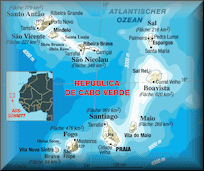-
-

Please Wait...
-
.org.cv Cape Verdean Domain Country Information - .org.cv Cape Verde Country Information
.org.cv

Price and Requirements for .org.cv Domains
Registration Pricing
- 1 Year 68.00 USD
- 3 Years 153.00 USD
- 5 Years 170.00 USD
Application Fee
Registration Time Frame
3 Months
Requirements
No Details Are Individual .org.cv domain registrations allowed?
Yes Details Company or legal entities registrations allowed for .org.cv?
Yes Details Are there requirements, documents, or information needed for .org.cv?
Yes Details Are some .org.cv domain names restricted?
No Details Does .org.cv domain have a special use?
Yes Details Other information I need to know about .org.cv?
No Details Are there any additional fees for .org.cv?
No Details Do I need a trademark/brand name to register .org.cv?
No Details WHOIS Privacy service available?
![]() Trustee / Proxy service offered? Fees?
No
Details
Trustee / Proxy service offered? Fees?
No
Details
.org.cv Cape Verde Country Information
The Republic of Cape Verde is an island country, spanning an archipelago of 10 islands located in the central Atlantic Ocean, 570 kilometres off the coast of Western Africa. The islands, covering a combined area of slightly over 4,000 square kilometres (1,500 sq mi), are of volcanic origin and while three of them (Sal, Boa Vista and Maio) are fairly flat, sandy and dry, the remaining ones are generally rockier and have more vegetation. However, because of the infrequent occurrence of rainfall the overall landscape is not particularly green, despite what the country's name suggests (verde is Portuguese for "green"). The name of the country stems instead from the nearby Cap Vert, on the Senegalese coast, which in its turn was originally named "Cabo Verde" when it was sighted by Portuguese explorers in 1444, a few years before the islands were discovered.
The previously uninhabited islands were discovered and colonized by the Portuguese in the 15th Century, and became an important location in the Atlantic slave trade due to their geographically advantageous position. The islands' prosperity often attracted privateers and pirates, including Sir Francis Drake, a corsair (privateer) under the authority of the British crown, who twice sacked the (then) capital Ribeira Grande, in the 1580s. The islands were also visited by Charles Darwin's expedition in 1832. The decline in the slave trade in the 19th century resulted in an economic crisis for the islands. With few natural resources, and without strong sustainable investment from the Portuguese, the citizens grew increasingly discontent with the colonial masters, who nevertheless refused to provide the local authorities with more autonomy. This discontent festered and culminated in 1975, when a movement led by Amílcar Cabral achieved independence for the archipelago.
The country has an estimated population (most of creole ethnicity) of about 500,000, with its capital city Praia accounting for a quarter of its citizens. Nearly 38% of the population lives in rural areas according to the 2010 Cape Verdean census; about 20% lives below the poverty threshold, and the literacy rate is around 85%. Politically, the country is a very stable democracy, with notable economic growth and improvements of living conditions despite its lack of natural resources, and has garnered international recognition by other countries and international organizations, which often provide development aid. Since 2007, Cape Verde has been classified as a developing nation.
Tough economic times during the last decades of its colonization and the first years of Cape Verde's independence led many to migrate to Europe, the Americas and other African countries. This migration was so significant that the number of Cape Verdeans and their descendants living abroad currently exceeds the population of Cape Verde itself. Historically, the influx of remittances from these immigrant communities to their families has provided a substantial contribution to help strengthen the country's economy. Currently, the Cape Verdean economy is mostly service-oriented with a growing focus on tourism and foreign investment, which benefits from the islands' warm climate throughout the year, diverse landscape, welcoming people and cultural richness, especially in music.
Cape Verde is a stable representative Parliamentary republic. The constitution —adopted in 1980 and revised in 1992, 1995 and 1999— defines the basic principles of its government. The president is the head of state and is elected by popular vote for a 5-year term. The prime minister is the head of government and proposes other ministers and secretaries of state. The prime minister is nominated by the National Assembly and appointed by the president. Members of the National Assembly are elected by popular vote for 5-year terms. Three parties now hold seats in the National Assembly—PAICV 40, MPD 30, and Cape Verdean Independent Democratic Union (UCID) 2.
.org.cv Cape Verde Domain Name - Country Information
| Country Domain | Cape Verde Domain Name .org.cv |
|---|---|
| Country Information | Cape Verde Domain Country Information .org.cv |
| TLD Bulk & Advanced Search | Cape Verde Bulk Domain Registration .org.cv |
| WhoIs Server | .org.cv Whois Server Information |
| Domain Renewals | Renewal Cape Verdean Domain .org.cv |
| Domain Transfer | Transfer Domain .org.cv |
| Domain Hosting | .org.cv Cape Verde Web Hosting |
| SSL Certificates | SSL Certificates |
| Email Services | .org.cv Cape Verde Email Services |
| Domain FAQ | .org.cv Domain Registration FAQ |
Cape Verde Country Information Search Terms
Cape Verdean Domain Country Information Cape Verdean Domain Registrar Cape Verdean World Wide Domain Registration Cape Verdean Country Code Top Level Domain .org.cv Domain Information Cape Verdean Country Information Cape Verde Country Information














